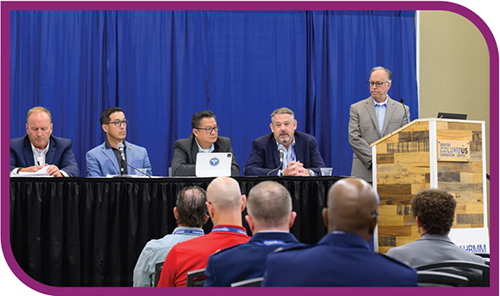
Perioperative leaders navigate some of the most challenging dynamics in healthcare. The precision required in the OR coupled with multidisciplinary teams and diverse personalities often lead to missteps or misunderstandings that can quickly brew into conflict. Effective communication is essential, particularly when addressing behavior, managing team dynamics, or delivering difficult…

Takeaways • Although the central tenets of value-based healthcare have not changed, in many cases implementation has been reduced to little more than reducing costs, to the detriment of clinicians and patients. • The right incentives, such as recognition and work support, can effectively inspire clinicians to deliver high value…

Takeaways • Interdepartmental collaboration and standardized communication are essential to quickly identifying and addressing supply chain challenges. • Just-in-time inventory strategies have gained traction since the pandemic. Successful strategies involve leveraging data, rethinking preference card management, and shifting to a demand-planning model. • Resiliency is essential to cope with the…

Ensuring safe, quality care requires precise alignment among inventory levels, delivery schedules, storage solutions, and every other element of the supply chain. A single missing piece of this puzzle—say, a delayed shipment or a storage issue—can disrupt the entire picture. Making the pieces fit can be difficult for any healthcare…

CEO Karen Franco, MBA, spent years struggling to fill surgical technologist (ST) positions at Pacific Surgery Center in Poulsbo, Washington, due to a lack of viable training options. Nearly 1,400 miles away, Deb Braly, RN, a nurse educator in the surgery department of San Luis Valley Regional Medical Center in…

Immersed in texts, apps, QR codes, and streaming videos, we live in a digital world. And yet, healthcare has been slow to catch up. Most nurses and other staff still hand out packets of paper and relay information verbally, whether in person or over the phone. It does not have…
Editor’s Note Entities covered by the HIPAA security rule may soon need to adapt to more prescriptive requirements, new compliance mandates, and significantly higher costs, according to a January 24 report from TechTarget. As outlined in a December notice of proposed rulemaking (NPRM), the proposal by the Department of Health…
Editor's Note The first study to directly compare kidney-related adverse outcomes between perioperative use of gabapentin and pregabalin shows that the former drug carries a higher risk, Renal and Urology News reported January 21. Published in Frontiers in Medicine, the study involved a trial emulation of 1,280 propensity-matched surgical patients…

Editor's Note The Supreme Court’s 2023 decision limiting race in college admissions has triggered an overzealous response from many medical schools, leading to a sharp decline in enrollment for underrepresented groups, according to an article published January 23 in STAT. As detailed in the article, Legal advisors have pushed schools…

Editor’s Note At the Society of Thoracic Surgeons (STS) annual meeting, experts urged cardiac surgeons to become more engaged in tricuspid valve treatment before transcatheter options gain too much traction according to a January 26 report in MedPage Today. With new transcatheter devices gaining FDA approval and the Centers for…